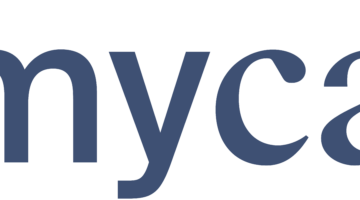
(Image via Getty)
Ed. note: This is the latest installment in a series of posts on motherhood in the legal profession, in partnership with our friends at MothersEsquire. Welcome Georgia Connally to our pages. Click here if you’d like to donate to MothersEsquire.
I hit “delete” again, erasing the phrase: “and for social studies homework” from the motion draft. This was the 400th time that I typed dicta from my child’s NTI lesson into a brief since March of last year. Luckily, I previously avoided filing a motion for leave that incorporated a sentence reading “Jason, you do not have to ask to go potty during NTI.”

How MyCase’s Smart Spend Can Help Increase Your Profits
This tweak to your financial management seems like a no-brainer.
And honestly, accidentally incorporating Ms. Robinson’s second-grade classroom into my legal writing is the least of my concerns. During the pandemic my children have made appearances in more than one court appointment. They have been lively participants in family, circuit, and criminal court across the Commonwealth. And, I am not alone — nor are my children alone in Zoom court. Mothers, and Practitioners, statewide endeavor in the daily struggle to silence their tiny co-counsels, consistently screaming for applesauce, during every motion hour. Other attorneys are logging into Zoom court under the same usernames that their children created for NTI — I have personally showed up to court as “Mister Fartpants.”
This experience has illuminated a deeper question at the core of practicing law as a mother — does virtual court really make it accessible?
Imagine being simultaneously expected to: (1) provide childcare services; (2) perform our duties as attorneys — be it court, meetings, or writing; (3) teach virtual learning to our school-aged children; and (4) ensure that our house does not burn to the literal ground. Can you simultaneously change a diaper and argue a complex legal matter? Can you simultaneously teach some sort of weird, block drawing, second-grade, chart-making math and write a dispositive brief? No? I didn’t think so. Law school doesn’t prepare you for this. But, perhaps motherhood does?
Prior to COVID-19, women were still the primary caregivers of household children. But, recent data shows that COVID-19 related childcare shortages and school changes have disproportionately affected working mothers, as opposed to working fathers. In other words, the data shows that more woman are working from home, teaching from home, and parenting from home. The legal field is not immune from impacts of the pandemic. The data shows that more law moms have taken to working from home — via zoom — than ever before. What is the impact (In a professional field not known for its congeniality)?

How AI Is Transforming The Legal Profession (2025)
A survey of professionals reveals the impact of legal work, clients, concerns, and future roles.
Early in the pandemic, I asked a male counterpart to roll a court appearance until the following week, when I would not have my children for quarantine. “It’s Zoom court,” he replied, “there is no reason why you cannot make it to internet court.” In reality, sir, there was a reason I could not make it to internet court. I, and all hard-working law-mothers fearlessly trying to tame wailing toddlers, still have to speak on Zoom court. I still have to unmute myself and give the court an inside look — or listen — into my chaotic, loud, and “unprofessional” household.
This puts us in a tough position as mothers and advocates. As advocates, we have an ethical obligation to make only those decisions in the best interest of our clients in any given matter. But how far does the obligation extend? It may be in my client’s best interest to lock my toddler in a dog crate during mediation, but it certainly isn’t in my children’s best interest.
Of course, then, it is of no surprise that more mothers are choosing their children. Data from the pandemic shows that more than 1 million mothers have left the workforce since the pandemic started. And, that is a bad — very bad — thing.
The truth is Zoom did not improve the mother’s predicament. It merely added to her responsibilities. And, more importantly, Zoom gave the government an excuse for not providing childcare or parenting resources during this time. Why would they need to provide childcare subsidies or resources when mothers are able to bear the brunt of both virtual employment, childcare, and parenting responsibilities.
The solution in this situation, unlike in many others, is the old-fashioned solution — grace.
(1) Allow that parent to roll her court date to the next week. Remember that people do not forget how you treat them when they ask you for help.
(2) Don’t flinch when law mom brings her child onto motion hour. Don’t comment and embarrass her when her children are screaming for applesauce during a hearing. Let her focus. Let her tune them out. If she can parent, and tune out her children, then you should be able to successfully ignore them through your computer screen.
- Do not comment on her screaming children unless she does it first. She doesn’t need you to remind her that they are present. She hasn’t forgotten — trust me.
- Do not publicly make fun of her screen name. Do not make her into a meme or an internet sensation over her kids’ Zoom background, username, or filter. She gracefully ignores your pleated khakis, so you can ignore her screen name.
- Be patient. Take a deep breathe. There are no jury trials right now — for the most part. Courts are backed up and court staff is equally overwhelmed. Ultimately, lawyering in the pandemic isn’t a sprint. It is a damn marathon, and we are all in it together.
Most of all, please remember that everyone has “Zoom to grow.” The technology is new, and it isn’t meant for everyone. Be reasonable about your expectations and patient with your staff, opposing counsel, and overworked clerks.
 Georgia Connally is a civil rights lawyer and the founder of Connally Law Offices, a Kentucky—Lexington and Louisville law firm devoted to making quality legal representation accessible to all Kentuckians. CLO is income based and bridges the gap between those who qualify for pro-bono legal services, and full priced services. CLO prides itself on its LGBTQ advocacy, civil rights, and family law advocacy—in addition to minority owned business formation services. In her free time, Georgia serves as an adjunct professor of political science at a local university. As a bisexual feminist, Georgia also enjoys LGBTQ advocacy and sits on the Boards of multiple LGBTQ organizations. At home, Georgia has three (3) daughters and one on the way. She prides herself in cleaning up legos and wiping crayon off of walls. See www.connallylawoffices.com for more information.
Georgia Connally is a civil rights lawyer and the founder of Connally Law Offices, a Kentucky—Lexington and Louisville law firm devoted to making quality legal representation accessible to all Kentuckians. CLO is income based and bridges the gap between those who qualify for pro-bono legal services, and full priced services. CLO prides itself on its LGBTQ advocacy, civil rights, and family law advocacy—in addition to minority owned business formation services. In her free time, Georgia serves as an adjunct professor of political science at a local university. As a bisexual feminist, Georgia also enjoys LGBTQ advocacy and sits on the Boards of multiple LGBTQ organizations. At home, Georgia has three (3) daughters and one on the way. She prides herself in cleaning up legos and wiping crayon off of walls. See www.connallylawoffices.com for more information.